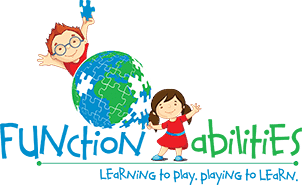
Autism is considered a spectrum disorder because its effects on each person can vary so widely. Although there is no medical test (ie. a blood test) for autism, it can be diagnosed by specially trained physicians and psychologists who administer autism specific evaluations. Being diagnosed with autism does not mean you cannot go on to live a full, productive, and meaningful life. With the help of early detection and intervention, the lives of people with autism and their families can be greatly improved.
What Is Autism Spectrum Disorder?
Autism spectrum disorder (ASD) is a complex neurological and developmental disorder that can affect language, thinking, feeling, and the ability to interact with others. According to the Centers for Disease Control and Prevention (CDC), an estimated 1 in 68 children is identified as having autism spectrum disorder. Of these diagnosed, boys are statistically more likely to demonstrate signs of autism.
What Causes Autism?
The Autism Society states: “There is no known single cause of autism, but increased awareness and early diagnosis/intervention and access to appropriate services/supports lead to significantly improved outcomes.”
What Are the Signs and Symptoms of Autism Spectrum Disorder?
ASD symptoms generally appear before the age of three… It is often characterized by social-interaction difficulties, communication challenges, and a propensity to have repetitive behaviors. Some of the more specific behaviors associated with autism include:
- delayed learning of language;
- difficulty making eye contact or holding a conversation;
- difficulty with executive functioning, which relates to reasoning and planning;
- narrow, intense interests;
- poor motor skills’ and
- sensory sensitivities.

Again, we caution that symptoms vary widely as to the number of behaviors and the severity of difficulties. As illustrated by the graph below provided by Autism Speaks, “the basic symptoms of autism are often accompanied by other medical conditions and challenges. These, too, can vary widely in severity.”
They continue: “While autism is usually a life-long condition, all children and adults benefit from interventions, or therapies, that can reduce symptoms and increase skills and abilities. Although it is best to begin intervention as soon as possible, the benefits of therapy can continue throughout life.”
What Can You Do Now That You Know About Autism Spectrum Disorder?
Early detection, diagnosis, and treatment are essential to reducing the symptoms of autism and, therefore, improving the quality of life for both the families of those with autism and the individual, themselves. If you have are concerned that your child may be exhibiting signs of autism, then you should seek out a professional in the field. Although helpful, a diagnosis is not necessary to getting started in treatment. Children with autism can learn to improve behavior, skills, communication, and more.
At FUNctionabilities, while we do not currently diagnosis autism we do address ASD through the following skill-oriented therapies:
How Can Occupational Therapy and Speech Therapy Help a Child With Autism Spectrum Disorder?
After assessing your child’s individual needs, we are able to use our evidence-based treatments to address the following areas of a child’s development:
- Social skills
- Play skills
- Daily living skills
- Community skills
- Emotional reciprocity
- Attention and focus
- Imitation and repetitive behaviors
- Sensory sensitivity
- Fine and gross motor skills
- And more
At FUNctionabilities, we leverage our evidence-based therapies, our unique methods, and our specialized facility to tailor and individualize our therapy to best meet the needs of your child with autism. In addition to having a committed and highly trained staff, a key component of our pediatric therapy is our sensory-rich environment schedule an evaluation! This specialized facility allows us to provide highly effective treatment in a fun, stress-free environment, which is one of our main goals: make therapy fun so your child is “Learning to Play” and “Playing to Learn.” Contact us today to schedule an evaluation!
For more information on how occupational therapy and speech therapy can help your child see:

onals/whatisot/cy/fact-sheets/autism%20fact%20sheet.pdf
https://www.asha.org/public/speech/disorders/Autism/
Resources & References
American Autism Association: https://www.myautism.org/
American Psychiatric Association: https://www.psychiatry.org/patients-families/autism/what-is-autism-spectrum-disorder
Autism Science Foundation: https://autismsciencefoundation.org/
Autism Society: http://www.autism-society.org/
Autism Speaks: https://www.autismspeaks.org/
Center for Disease Control and Prevention: https://www.cdc.gov/ncbddd/autism/index.html
Mayo Clinic: https://www.mayoclinic.org/diseases-conditions/autism-spectrum-disorder/symptoms-causes/syc-20352928
National Institute of Mental Health: https://www.nimh.nih.gov/health/topics/autism-spectrum-disorders-asd/index.shtml
Autism Spectrum Disorder: https://nspt4kids.com/healthtopics-and-conditions-database/autism-spectrum-disorder/
